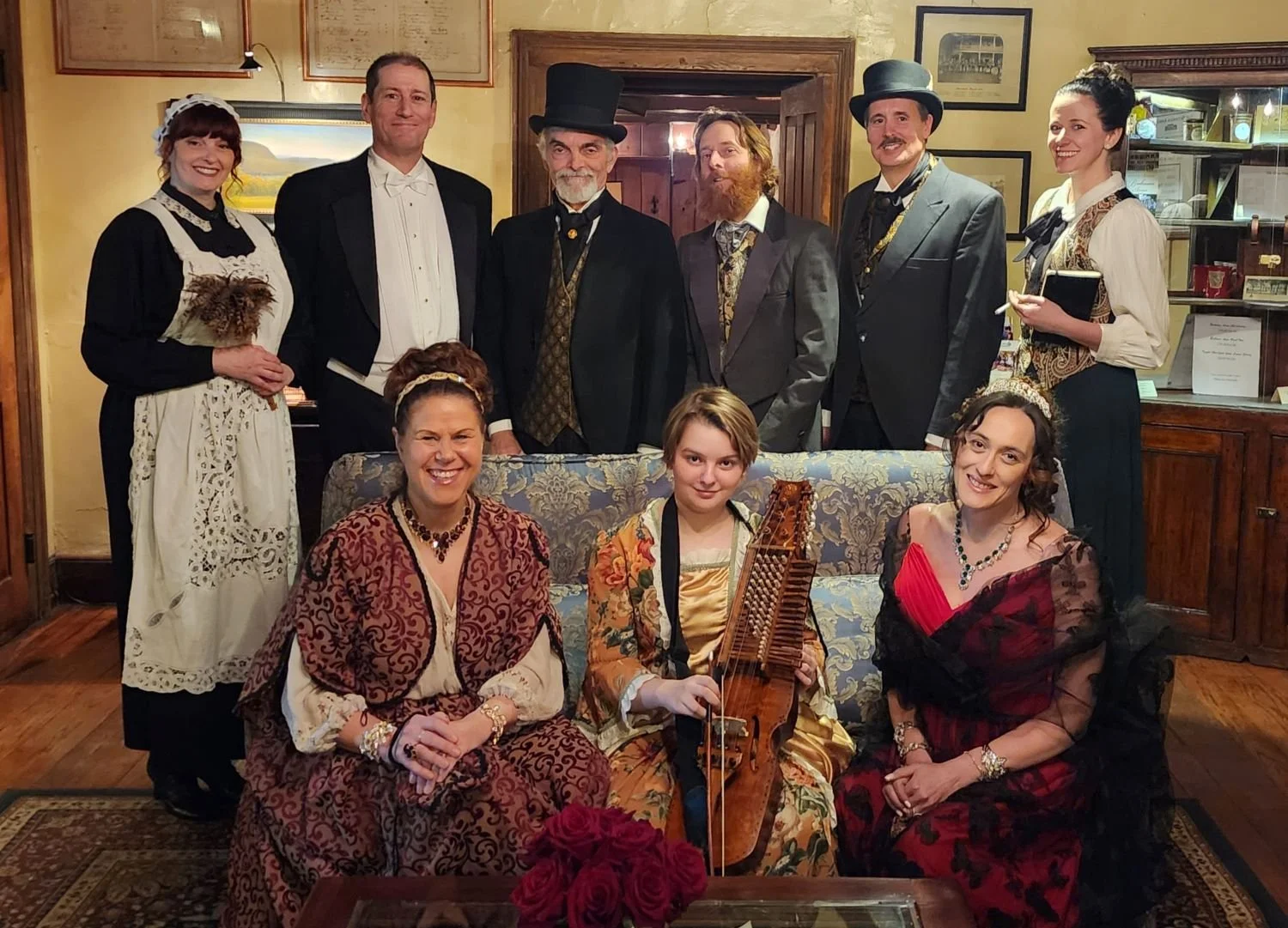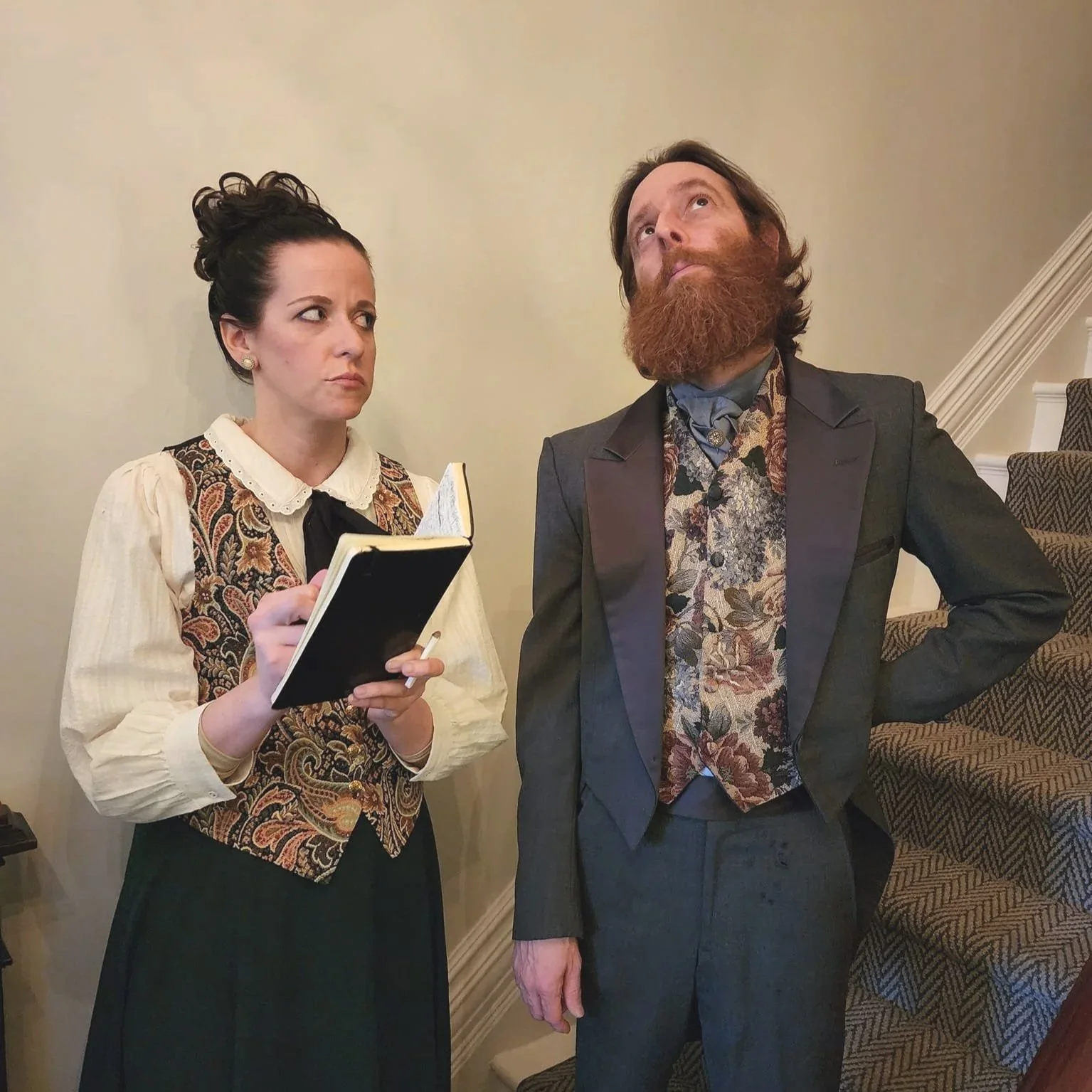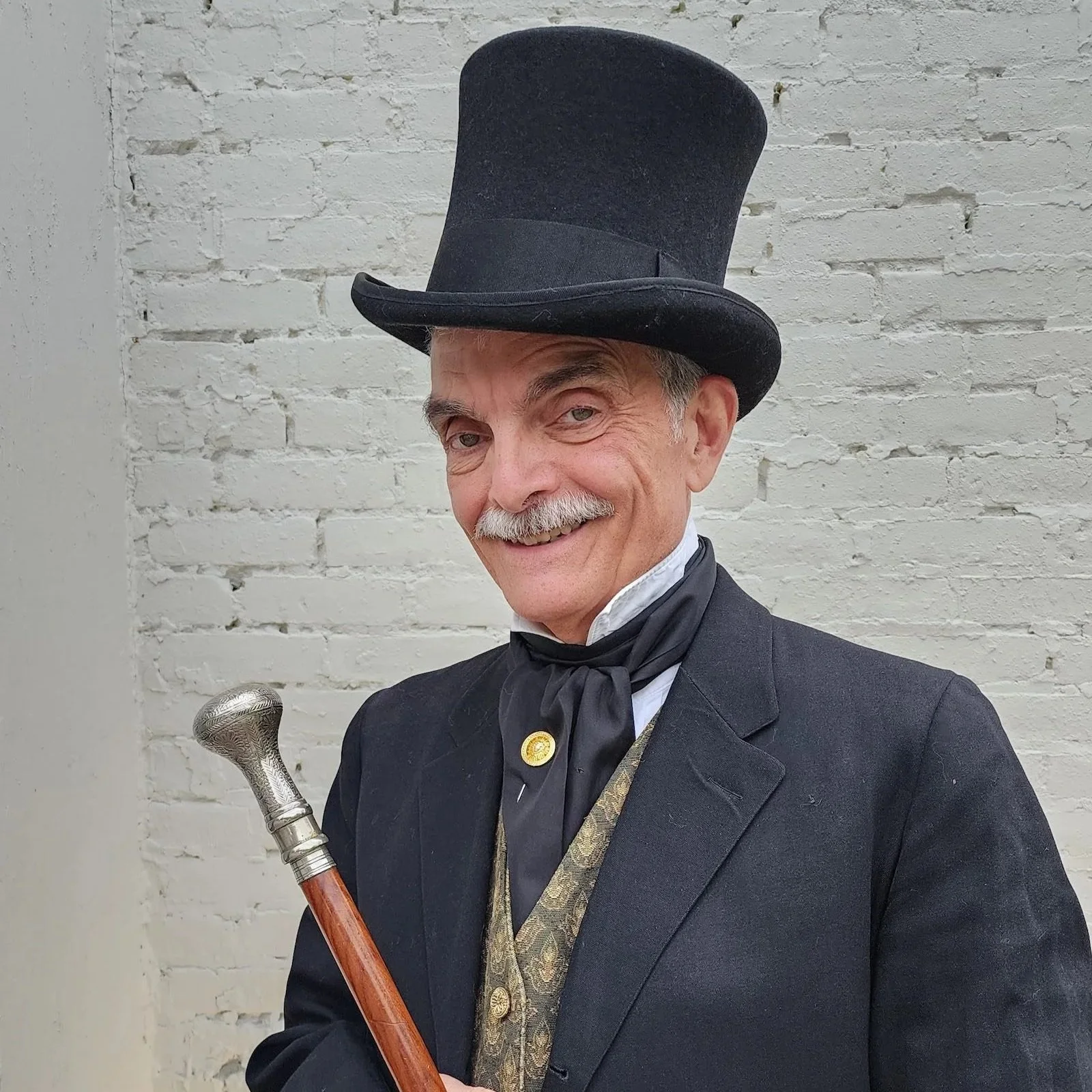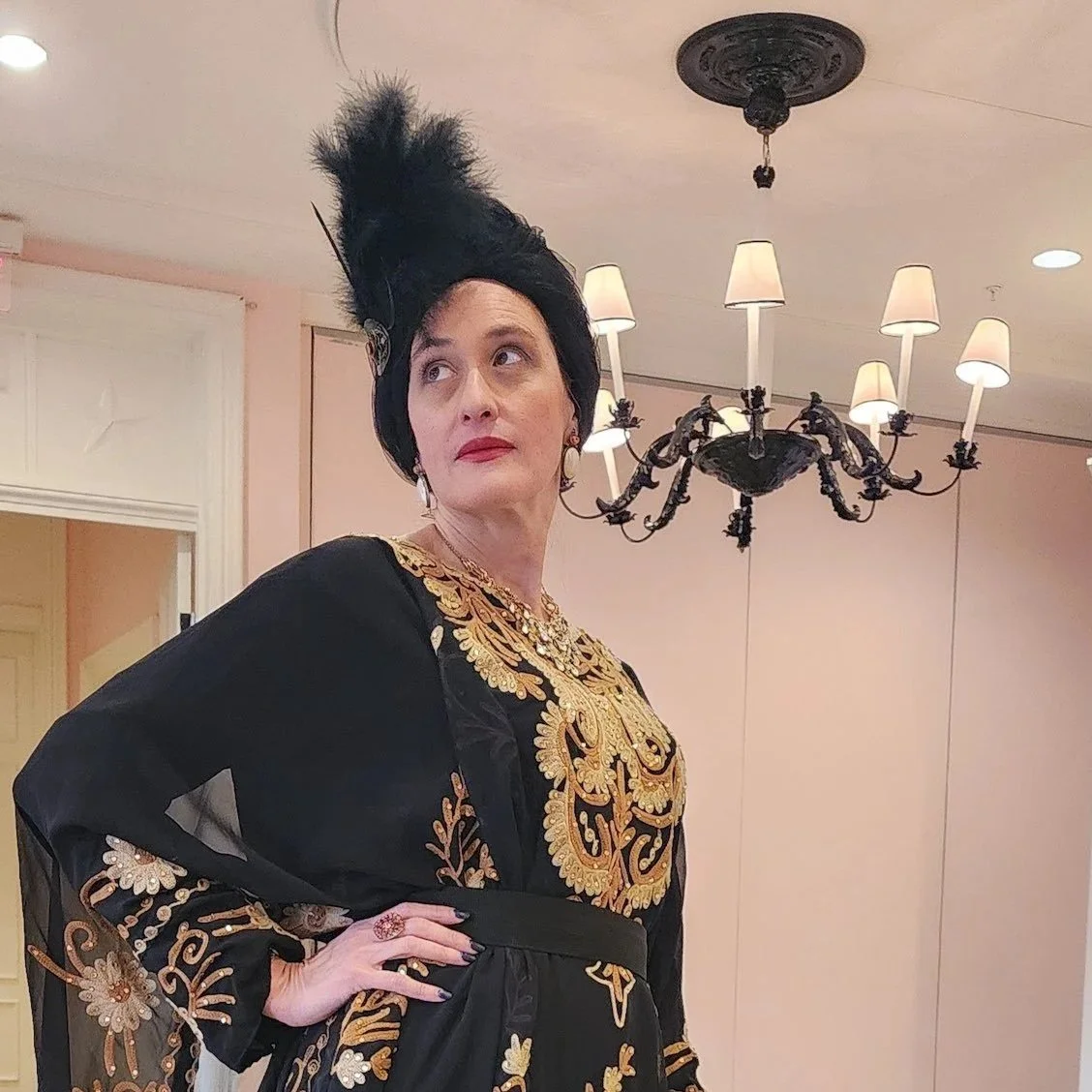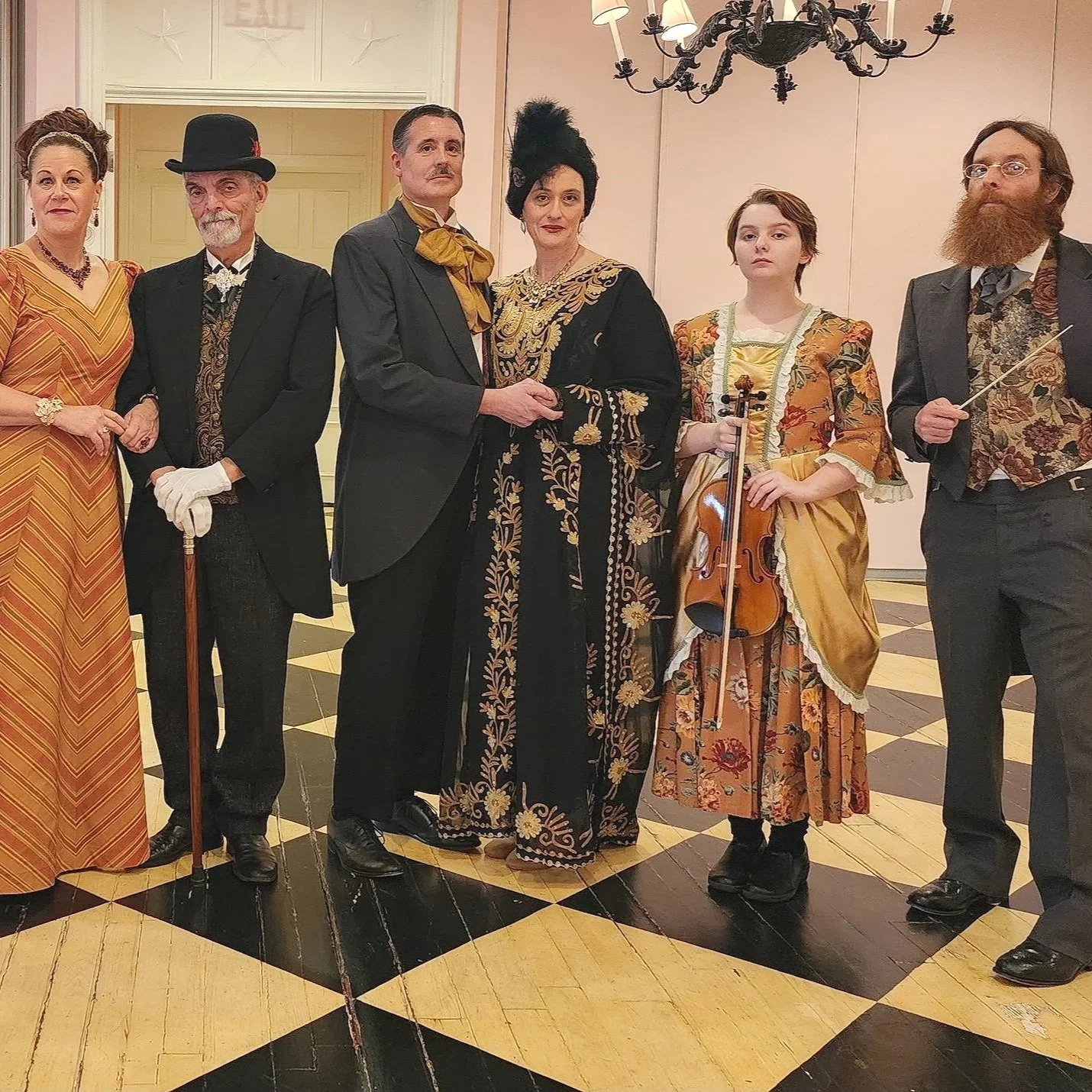Murder Cafe’s Frank Marquette on What to Expect During the Upcoming Immersive Historical Theater Weekend
By Craig Friedman
What kind of theater do you like best: murder mysteries, musicals, or comedies? No need to choose just one: “Mystery on the Hudson,” an immersive show that takes place over days, is coming to Hutton Brickyards for one weekend in January, 2026, and it combines all three genres. Even better, it’s also part of a weekend retreat that includes meals and accommodations, hosted at Hutton Brickyards, the 100-acre hotel and venue in Kingston, New York.
Billed as a “Victorian Era Whodunit Played Out Over a Weekend,” the show is the brainchild of actor-writer-director Frank Marquette, who’s been producing entertainment in the New York area for public and private events since 2009. His company, Murder Cafe, founded in Las Vegas in 1998, is a traveling theater group dedicated to producing and performing living history and literature in hotels, historic sites, restaurants, casinos, cruises, and schools. We asked Frank to explain how he got into this unusual business and what guests should expect.
How do you describe “Mystery on the Hudson?”
This is a historical murder mystery, set in Kingston during the Victorian or the Gilded Age. I've done versions of this show off and on for the last 10 years. So it’s 1880, and there are eight characters. Four of them are accurately historic characters that are related to the history of Kingston during that time period, during this explosion of wealth and commerce along the Roundout Creek and the Roundout area of Kingston.
And then, of course, there’s a butler and a maid. You also have a reporter, a woman who works for the Kingston Weekly Freeman, who's a society columnist who ends up being the investigator. And a law professor who specializes in estate planning from Vassar College. Eight interesting characters.
How does hosting this weekend experience at a historic venue like Hutton Brickyards impact the show?
Immersing ourselves in a historic site, namely an estate or inn that was not designed for theater, is often a challenge, but one we love to overcome. Being immersed in an 18th or 19th-century building gives us an opportunity to not only explore its history and the people that occupied it, but to take advantage of the physical surroundings. That includes fireplaces, artwork, doors and passageways, parlors and libraries, and kitchens. Each has a significance, and one that becomes part of our presentation. The site offers assets just like our actors and costumes do. From the beginning, we customize our script, inserting references to the historic characters that occupied the structure, and paying homage to its physical attributes.
Guests will be immersed in the late 19th-century history of Kingston, particularly the history of the Rondout area. Thomas Cornell, one of the characters, was a congressman involved in shipping and the bluestone industry. He was also involved in railroads, which led to the birth of the hotel industry. Julia Dillon, who was a landscape painter and specialized in floral arrangements, ended up running a foundry down along the Roundout after her husband passed away. It was unheard of for a woman, especially an artist, to run a foundry during that time period.
Should guests wear costumes to match the era?
We encourage people to come in costume. Of course, it isn't required, but it does give us more opportunities to engage with the audience. Seeing someone in Victorian dress will give us license to assign them a character name. "Oh look, it is Cornelius Vanderbilt. How pleased we are that you are visiting Kingston. What brings you to our winter soiree?" Studying the history of late 19th-century Kingston, we have many references and guests love it when they are singled out. We do not expect them to respond, but it is always fun when they do. We figure if they took the time to invest in a costume they should be acknowledged in some way.
This is a full weekend experience and not just a two-hour event. Does that impact how you structure the action?
It is a challenge to hold an audience's attention for two hours, especially in the age of smartphones. Keeping a group of guests focused on a historic mystery over an entire weekend offers even more challenges. Based on the successful responses that we have received from our mystery weekends over the past eight years, I would say we have overcome those challenges. Each segment, or act (and there are four), needs to be engaging, loaded with both educational and entertaining elements, and full of clues. Success is when we finish the first act on Friday night and the guests cannot wait until the second act unfolds on Saturday morning. And so it goes throughout the weekend. This is a living puzzle and to put the pieces together, the guests must be attentive. It's our job to keep them focused and entertained throughout the weekend.
The production has four acts that stretch from Friday to Sunday, right?
Yes, so Friday night the characters mingle with the guests at Hutton Brickyards. It's a lot of fun when we single out people in the audience and give them character names. For example, Calvert Vaux, a famous architect. He's buried in Kingston, and he was responsible for designing Central Park and many of the historic mansions in the Hudson Valley. I'll find Calvert, and people play along with that. And then the scripted part of the show begins; conflicts are played out and the characters demonstrate who they are — and what their motives are.
Act two is Saturday morning and the conflicts continue to escalate. The murder occurs during Act Two. There are also red herrings… and music, a few interactive elements with the audience, a guessing game, and a parlor game.
Act three is Saturday night — after the murder. Thomas Cornell will take the floor and admit, like most people of his ilk in this day and age, is dabbling in the paranormal. And he will do an exercise with the audience, which always goes over extremely well. Clues are announced and, at the end of Saturday night, the guests fill out whodunit sheets. They have to tell us who they think the murderer is and why.
Then Sunday morning is act four — the big reveal. At the end of that, we'll make some announcements, give away some prizes, and mingle with the guests after we drop character. That's kind of great.
How did you get into this kind of theater?
I have a book out, which goes into great detail about this. I got into regional theater in Albuquerque, New Mexico. I was doing theater at night and working my graphic design job as well. And then someone asked me to audition for a murder mystery dinner theater company. I was very leery. Didn't quite know what it was. Seemed a little ridiculous. I was cast, and I became addicted to it because it really was a mashup of everything that I ever wanted to do. It had elements of comedy, strong elements of music, and it was interactive. I could work directly with an audience. And sharing energy with an audience was a lifelong dream.
How big is the company now?
Presently, we're looking at 50 to 60 events a year, plus mystery weekends. I'm engaged in all aspects of this business. I've kind of stepped back as an actor for the most part. I have a couple of people working for me as directors, road managers. I do the bookings. I handle the marketing somewhat. I manage all aspects of the business. This morning I've been up early designing a brochure and labels for props and planning a big dress rehearsal that we have tonight. We also have auditions. I always like bringing new people into this.
How is your wife Kristen involved?
My wife is not only my partner, she designs all the costumes. And we are very costume-heavy with a lot of detail. She's also my editor. If I'm writing something, I'll show it to her. She has great input into that.
What kind of audience do you usually get?
Murder Mystery Dinner Theater is entry-level theater for many people; it combines theater with dining. And we get a lot of people who are not theater goers. But once they experience it, they're more relaxed and more willing to investigate other types of theater. That's very important to me. In other words: don't be afraid. You like music, you like comedy, you like live performance. We're not a threat. We're here to entertain you. We're not going to pick on you. We're not gonna make you uncomfortable. We're there to make you comfortable.
Click below for more information, to see the daily itinerary, and to book tickets.

